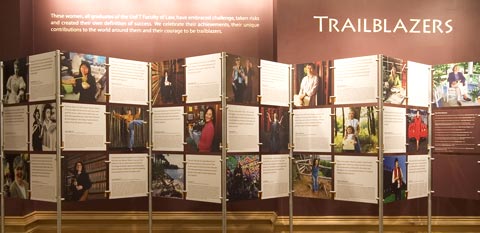Trailblazers
By Margaret Webb
From the Spring/Summer 2006 issue of Nexus. This article is a companion piece to the "Women Trailblazers" exhibit.
In conjunction with International Women's Day on March 8th, 2006, the U of T Faculty of Law unveiled a photo exhibit, located outside the Rowell Room in Flavelle House, celebrating 19 remarkable women graduates who are trailblazers in the legal profession.
She is clearly upset. The young woman, a recent U of T Law School graduate, calls in the evening, not wanting colleagues to overhear, not wanting her name revealed. She is apprehensive that even complaining about her profession will have a detrimental effect on her career. Still, she is keen to express her dissatisfaction, which, the longer she talks, verges on outrage. "Law school isn't anything like the practice of law," she says.
Most women understand exactly what she means. And that is trying to juggle a family, a personal life, even a partner with 80-hour work weeks. Lawyers tethering themselves to clients nearly 24/7, by email, cell phone, fax. Part-time work arrangements for new mothers that push to 60 hours a week. Not to mention a work culture that exerts a not-so-subtle pressure to accept this state of affairs or forfeit the partner track. Many women choose to leave the profession altogether.
The young lawyer on the phone is quick to label the problem - "it's still a male-dominated profession" - yet she is less certain how to effect change. Well, this is a story for her.
It's been 105 years since the first female barrister in Canada - nay, the entire British Empire - graduated from U of T with an LLB, yet a mere 30 years since women started entering the profession in any significant numbers. That is to say, women are still pioneers in this field, yes, even now, as that first substantial wave of graduates from the 70s and 80s is just reaching the upper echelons of the judiciary. This past march, U of T Law School showcased its trailblazing women alumni. Starting with Clara Brett Martin - who persisted with her application to the Law Society of Upper Canada even after it deemed the word "persons" in its governing statutes could in no way be interpreted to include women - these alumni blazed a trail right up to the Supreme Court, with the Hon. Rosalie Abella being sworn in as Judge on October 2, 2004. To borrow a phrase from her inaugural speech, Abella merely persisted through law's "inhibiting power of tradition" to become the first female Jewish judge in Canada. How they did it is a study in persistence and courage, not to mention humour.
The Lonely Fifties
When Anna (Penina) Bacon Ker ('52) heard that U of T had launched a three-year Bachelor of Laws degree - the dawn of the modern law school - she "hightailed" it out of her Classics degree and veritably ran across University Avenue to enroll. Given that she was the only woman in classics, she hardly realized that she was the only woman through three years at law school.
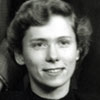
Ana Bacon Ker |
She became, in her words, "just one of the guys." She recalls an exceedingly polite and respectful environment - a far cry from the jeering and cat-calling Martin endured in lectures. Then Dean Cecil ("Caesar") Wright and other law professors - likely through the unsung force of the Faculty Wives Club - created a warm social circle by inviting her to their homes for dinner. "They probably thought it was worse for me than I did."
Then came the shock of graduation. Law school was to be "the very best part" of her law career. Though Ker finished second in her class, it fell to Dean Wright to secure her a hardly glamorous position drafting wills for a trust company. When she married, she resigned. "Working and marrying - it just wasn't done then," she says. "The times were not particularly comfortable for women."
Looking back, she admits she didn't challenge the status quo as much as she would today. "I was young, 22, and not particularly aggressive. But you do what seems right at the time."
The Slow To Change Sixties
More than 10 years later, there were still only five or six women in a class of 150. Indeed, women students were regarded "as an entertaining oddity," says Hon. Madam Justice Rosalie Abella ('70), who entered law school in 1967. "There weren't enough of us to present a threat."
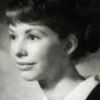
Janet Stubbs |
The law profession was even less welcoming, conducting itself as if the women's suffrage movement to win the vote 40 years before had never occurred. Janet Stubbs ('69), now the Director of the Ontario Arts Council Foundation, was told flat out by one firm that they didn't hire women. She eventually landed an articling position with McCarthy and McCarthy. However, Abella - future litigator, academic, royal commissioner, Supreme Court Judge - faced a wall. "I don't know whether it was about being Jewish or a woman, but it was tough to get an articling job. But then, I expected it to be tough. One (firm) said, I hope you understand, we're just not hiring women."
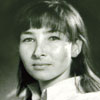
Rosalie Abella
|
When her father was diagnosed with cancer, Abella lost hope and stopped searching. Dean Ronald St. J. MacDonald stepped in and set up an articling interview for Abella. Once in the door, Abella soared. The profession, she says, was on the cusp of change, realizing that it had to remove barriers to women and minorities. Suddenly, Abella found herself in demand to give speeches on family law and human rights. "Both men and women were involved in those conversations and they were very open. It was almost the opposite of what it is today, with people feeling uncomfortable with the conversation."
Opportunities came along and she threw herself into them. "I just never stopped trying," she says. Her advice? "Don't be afraid to take risks on principles that are important to you."
The Trailblazing Seventies
They are the firecrackers, the trailblazers, the ones who got the whole ball rolling - just a few of the definitions these women offered up of their generation.
They arrived at law school in the mid seventies having done their reading - The Feminine Mystique, The Female Eunuch. As their numbers increased steadily - from about 10 percent in '73 to about 25 percent by the end of the decade - the school felt the impact. Dean Martin Friedland appointed many of the school's first female law professors, and introduced curriculum changes (including interdisciplinary legal studies) that would nudge the study of law into a new era.

Lorraine Weinrib |
This generation brought new ideas with them - that gender did matter and that law was hardly a neutral instrument. "It was a male culture, but there was an assumption that it was neutral," says Lorraine Weinrib('73) who went on to litigate extensively in the Supreme Court and now teaches advanced courses on the Canadian Charter at U of T. "In one criminal course, all the examples were rape cases and the professor talked jocularly about it - oops, Flossie got raped again."
But one of the first gender issues women raised was, well, on the subject of bathrooms. The law school had precisely two stalls. "It was hard for us all to use the facilities in the 20 minute breaks we had," laughs Weinrib. "Someone invariably had to go to the associate dean to ask for more toilet paper."

Maureen Kempston Darkes |
Yet, the increasing number of women was proving a real threat - not just to the plumbing but to the conservative old-boys nature of the profession. Weinrib says resentment simmered among both professors and male students. "One of my classmates told me outright that I shouldn't be in the class because I was taking the place of his friend who was highest on the waiting list."
Maureen Kempston Darkes ('73), GM Group Vice President and President GM Latin America, Africa and the Middle East, says the greatest challenge in the seventies was "being taken seriously. The sense was, aren't you just going to get married? But we were there for a purpose and we had every intention of having a serious career."
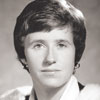
Jean Fraser |
Indeed. Jean Fraser('75), a leading corporate finance specialist and senior partner at Osler, Hoskins & Harcourt, joined a study group that included future bright lights Rob Prichard and David Cohen, who would become deans of law at U of T and Pace University respectively. The group would stay together through three years. "We kicked around stuff beyond the black letter of the law, often in the middle of the night over our eighth pizza," says Fraser. "I think it helped me apply law, which is really what lawyering is all about. It was the first taste of what it would be like to have professional colleagues. I just loved the whole challenge."
For the first time, women graduated to open doors and opportunity. At least officially, the legal profession said they wanted more women in their firms and went recruiting. Says Fraser: "The larger law firms were falling all over themselves to hire women, and they were run in such a fashion that gave us real opportunity. In a way, we were beneficiaries of affirmative action, but the benefit didn't last very long."
Nor did the honeymoon. These "lady lawyers," as they were often called, began opening eyes from the first day on the job. Weinrib says her male colleagues actually discussed whether she should be, along with their secretaries, rotated in to relieve the receptionist at lunch. "Gender identity was stronger than my legal qualifications."
Traveling with a male colleague for work on a case was also questioned, making it difficult for a woman to get work on interesting cases. Announcing pregnancies often provoked angry outbursts from mentoring lawyers, who felt they had wasted time on training. In court, Weinrib says she endured occasional taunts, being called Mr. Weinrib or, when she was obviously pregnant, Miss Weinrib. "I thought at one point that being a woman is such a burden. I'd come home and dump on my husband (U of T law Professor Ernie Weinrib) and he'd say, 'no one would ever say that to a man.' But I would somehow feel emptied and he wouldn't be able to sleep all night."
Tough as the times were, the trailblazers also reported having exceptionally supportive male mentors - crucial to moving into senior ranks. And their careers were on the fast track, so much so that many women were reluctant to step off for children, becoming the "super moms" of the eighties. Fraser says she managed by "hiring help to do everything that you could possibly farm out to someone else
It's one of the benefits of a decent income, though I wasn't sure I was making much after I paid everyone."
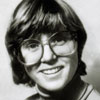
Kirby Chown |
After acquiring a substantial number of firsts - to be hired by their firm, to have children, to appear in the Supreme Court, to become partners - these women started pushing for change. Kirby Chown('79), now a managing partner at McCarthy Tétrault, says she studied the male culture of her law firm "almost as a tourist" for the first few years. "Law was behind on issues focusing on women. But with about five years under my belt, I began to appreciate the power I had." With twins at home, she set boundaries around her personal time while she and other women advocated for flex time and more progressive policies for both maternity and paternity leaves. "I felt strongly about things and more able to speak out
. You had to be willing to be farther out there, to raise issues, and also to practice effectively and show leadership
. The ability to speak up and advocate for changes within your own work setting is a quality that should be accepted and admired as a mark of leadership."
Chown says women also brought a different approach to the practice of law, especially in her field of family law. "The male model was advocacy - we're going to trial. Now we have a whole structure in Ontario that encourages mediation and alternative dispute resolutions. Womens' style tends to be more resolution seeking through consensus building and that's had a profound effect on dispute resolution."
And then, of course, there is the sheer contribution they made as role models. Weinrib recalls arguing a case in the Supreme Court in 1982 when Bertha Wilson was appointed its first female judge. After an interruption, the court returned and made the announcement. "When they came back, I think some were not happy. But I was overwhelmed with this very, very positive feeling that I would no longer be the only woman in the courtroom."
The Tumultuous Eighties
They arrived at law school, many without any clear idea why. Oh, there was the allure of a high-paying, secure career. But law? What would they find in law, really? For the first few weeks, they discovered culture shock as they encountered an environment that was predominantly white and deeply alienating. Yet by graduation, they had found their own personal calling to the profession.

Nita Iyer |
As more visible minorities entered law school in the eighties, race began trumping gender as a leading issue. For women of colour, law school proved an "incredibly politicizing experience," says Nitya Iyer('86), a specialist in human rights, pay equity and constitutional law with Heenan Blaikie in Vancouver. "Feminist issues were very much debated, but there was a huge silence and discomfort around race. You can't go through a year of law without realizing that whatever field of law you're looking at, different groups of people get advantaged or disadvantaged by it
. My colour mattered in a way that it hadn't before."
Avvy Yao-Yao Go ('89), a founder and director of the Metro Toronto Chinese and South East Asian Legal Clinic, didn't really know why she applied to law school, other than, she says laughing, it was "a good way to make a lot of money."

Avvy Yao-Yao Go |
But she was dismayed, from the first day, when a professor told the incoming class that they were "the cream of the crop" and were going to be "the most powerful people in Canada." Says Go: "People around me were nodding their heads!" Instantly, she discovered an egalitarian streak and began hanging out with people who "didn't belong," students who weren't "someone's son or daughter."
Go, like Iyer, also began spending much of her time working at a downtown legal clinic in Chinatown. "Some Chinese students had no interest in the clinic because they didn't want to be ghettoized, but it was there that I found out what I wanted to do," says Go. "Courses were theoretical but here were real people with real legal problems and I thought, there is meaning in life. This is what I should be doing."
Race, complicated with gender, heated up student politics at the school. Iyer joined the fledgling Women in Law Caucus and anti-apartheid movement. The former raised hell by taking pictures of sexist graffiti in the men's washroom and plastering the pictures around the law school. For South African Ambassador Glenn Babb's visit to the University, Iyer joined an art protest that sparked a riot outside Hart House. Says Iyer: "I found law fascinating because I had never thought how class and race and sex actually organize and divide people. It was a very challenging, if not a happy time. But it changed my life."
Their struggle continues into their careers. Two recruiters at leading Toronto law firms say that firms are making little effort to increase diversity.
While her clinic gives her the platform to address issues important to the Chinese community, Go says racism is a constant - not only for her clients but for her as she advocates on their behalf. "People make comments about me or my name or my appearance - especially among the tribunals. Sometimes there's a total lack of respect and even disdain. You really have to wonder."
 |
Darlene Johnston('86), the first aboriginal woman to attend U of T law school, was dismayed by the lack of aboriginal content in courses and sought to correct it, by becoming a professor at University of Ottawa and now U of T. She too found her political bearings outside law school, by working as lands research co-ordinator for the Chippewas of Nawash First Nation. Her advocacy led to protection of their commercial fishery, burial grounds and culturally significant sites. "There were times that involved confrontation," says Johnston, "and law school teaches the legitimacy of the status quo, to accept the status quo and be respectful. But from an aboriginal perspective, there are lots of things that appear legal but have been imposed on First Nations."
"I also had to learn to make my legal skills relevant to the community, to not assume that the law or lawyers had all the answers but to be more sensitive to what the community was trying to accomplish then see how the law could help."
When Robert Prichard became dean in 1984, he ushered in more innovative curriculum changes, shoring up feminist, race, international and aboriginal content. Now, Johnston says U of T works hard to recruit aboriginal students, with about 10 enrolling each year. Says Johnston, who also serves as aboriginal faculty advisor: "Things are very much improved."
The Out Nineties
After storming the streets of New York City as an AIDS and gay activist, Pam Shime ('95) entered U of T law school to find a decidedly meek environment. As the only out lesbian in her year, she joined Out in Law, a gay and lesbian student organization. There were only about 10 members.
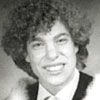
Pam Shime |
Still, she says they made an incredible impact, just by being visible. "Out students teach the whole law school because they humanize difference. In coming out, they're role models because it requires integrity, honesty and, unfortunately, still courage. But these are all important qualities for a lawyer."
Shime, who now teaches courses on sexuality and law at U of T and is the faculty advisor for Out in Law, says that even a decade later and with numerous gay lawyers as role models, law students are still reluctant to come out professionally. "They often assume big firms are homophobic."
She believes that law firms are actually more accepting than students think, but that they too often hide behind the prejudices of clients, or the assumption that clients are homophobic, racist or sexist. "They're very often wrong," says Shime. "Also, if a firm stands up and tells a client, 'this is the lawyer who can help you,' clients would rarely refuse that help."
As a National Director of Pro Bono Students Canada, she encourages law students to play a more activist role and come forward with strategies on how to make the profession more accessible - not just to gays and lesbians but for visible minorities and the disabled.
"No one's going to invite you to the table," says Shime. "You just have to step forward with ideas. But I believe there's a lot of good intention at the law school around these issues and goodwill at firms, but people often don't know how to address issues or change the way they work."
2000: And Now?
Women have surpassed the number of men in law school at U of T, but it still isn't easy being a female lawyer. The profession is still largely based on an outdated model of the male lawyer who devotes his life to the firm while his wife devotes herself to looking after him and their family. That model doesn't quite work for women whose biological clock starts ticking about the time they get called to the bar.
Pam Shime says the model doesn't work for many young men entering the profession either. This generation, she says, wants more time not just for family, but personal pursuits. Yet, U of T Law Professor Lorraine Weinrib believes there's a great reluctance amongst law firms to address a work/life balance that is seriously askew. If anything, work hours are getting longer. Shime agrees and they both have their theories.
When Weinrib meets students for informal career counseling, she says men never raise the issue of work/life balance and women always do. "Money, prestige and professional status is worth all the work for men. For women, it's not."
Extreme devotion to billable hours may be devotion; it may also be a way of keeping women from reaching the highest ranks. "Sexism," says Shime, "is taking on newer and more subtle forms and we need a more sophisticated approach to dealing with it."
Perhaps a sophisticated response is refusing to label work/life balance a "woman's issue." GM VP Kempston Darkes skirts gender language altogether and calls it "a critical business issue," while pointing out that her GM corporate lawyer has six children. "If I want to retain the very best, I need to create a working environment that supports their needs." Proudly, she outlines a number of initiatives she created to support flexible work schedules and help women become plant managers at GM. "It's not just a case of accepting diversity, but of valuing diversity."
Ah, getting to the top has its rewards. For these trailblazing alumni, maybe the sweetest part of the deal is securing the power to bring about change.
